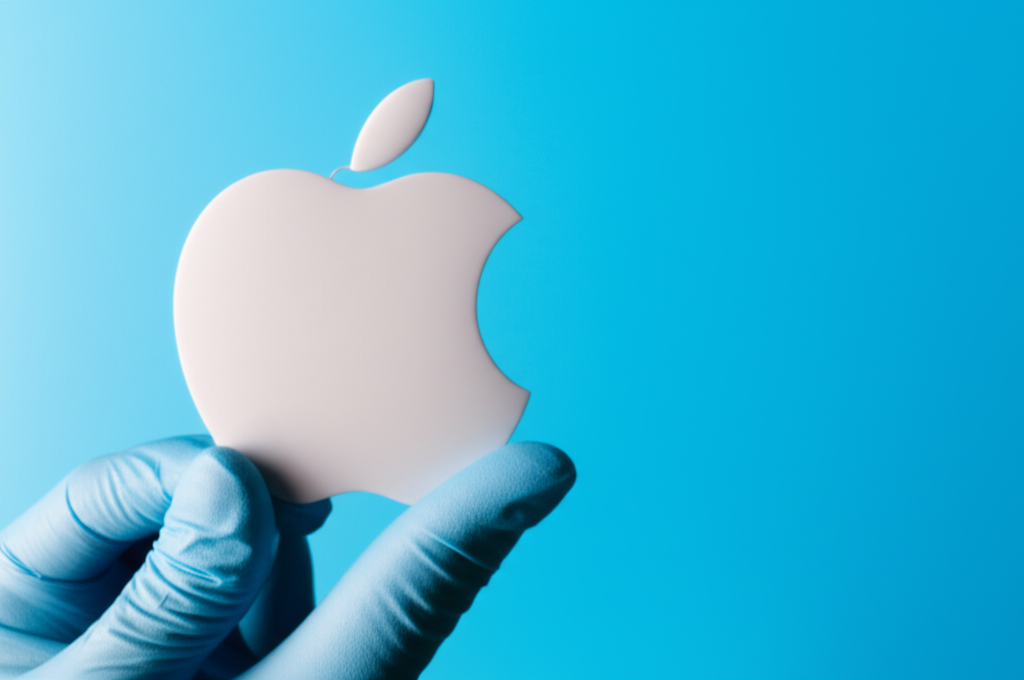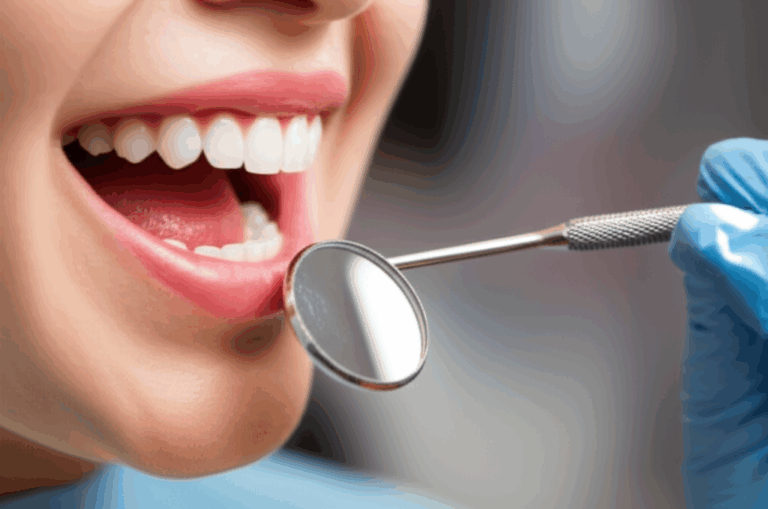
Does Apple Health Cover Dental Implants in Washington State? Your Complete Guide to Coverage, Alternatives, and Affordable Answers
If you’re missing a tooth, thinking about dental implants, and use Apple Health (Washington’s Medicaid), you’re not alone. Every month, a lot of people in Washington ask, Does Apple Health cover dental implants? They worry, “Will my insurance help if I can’t pay for this?” or, “Are there other ways if the answer is no?”
That’s a good question—and it matters a lot. Losing a tooth hurts your confidence, your comfort, and dental costs feel scary. If you’re stressed, confused, or just looking for answers, you’re in the right place. Let’s break down, in simple words, what’s really covered, why implants are tricky, and how you can still get the help you need.
In This Article
Here’s what you’ll find. Jump to what you need, or read through it all.
- 1. The Big Question: Does Apple Health Cover Dental Implants?
- 2. Why Insurance Says “No”: The Real Story on Implants and Medicaid
- 3. What Dental Services Does Apple Health Actually Cover?
- 4. Apple Health Alternatives: Dentures, Bridges, and More
- 5. Affordable Dental Implant Options in Washington State
- 6. Who Might Qualify for an Exception?
- 7. How to Check Your Own Apple Health Dental Benefits
- 8. Quick Facts & Myths: Apple Health Dental by the Numbers
- 9. Takeaway Tips and Your Next Steps
1. The Big Question: Does Apple Health Cover Dental Implants?
Let’s get to the point because you want a simple answer.
Does Apple Health (Washington State Medicaid) cover dental implants for adults?
Almost always, no—they don’t.
Dental implants are nearly always not covered by Medicaid in Washington, even for adults with Apple Health. They see them as “cosmetic” or “not necessary”—basically, a fancy upgrade instead of using things like dentures or bridges. There are a few, very rare exceptions: sometimes, if there is a strong medical reason and there’s really no other way, you might get an implant approved. But that almost never happens.
So, what does that mean for you?
- If you need an implant to fix a missing tooth, Apple Health will probably not pay for it.
- But don’t give up. There are other ways and resources to help.
Next, let’s see why insurance says no, and what you can really do instead.
2. Why Insurance Says “No”: The Real Story on Implants and Medicaid
It doesn’t seem fair, right? A missing tooth hurts your self-esteem, your health, and how you eat, but insurance still says no. Here’s why:
It’s About the Cost
Think of dental implants like the fancy car of tooth replacement. One implant—putting in the metal post, the connector, and the tooth on top—can cost $3,000 to $6,000 for just one tooth (not counting extras like bone work or X-rays). Dentures or bridges often cost much less.
With millions of people using Apple Health, and only so much money, Medicaid has to make those dollars count. Paying for dental implants for all adults just isn’t possible.
How Medicaid Decides What’s Needed
Medicaid covers things that keep you healthy, out of pain, or able to function—not things because they look better, are handy, or are “the best option.” If a cheaper treatment (like a denture or bridge) can get your mouth working, that’s what’s paid for. It’s not just Washington: almost no state Medicaid program covers adult dental implants.
Are There Any Exceptions?
Only in the rarest cases. For example, if you lost teeth after cancer surgery and no other option (like dentures) works—maybe you are allergic or your jaw just won’t hold them—the state might think about an implant. But even then, it takes a lot of paperwork and is a tough process.
3. What Dental Services Does Apple Health Actually Cover?
Okay—the door to implants is mostly closed, but there are other dental treatments you can get. Here’s what adults on Apple Health usually get:
Dental Services Covered by Apple Health (For Adults)
- Exams & X-rays: Check-ups and tools to spot problems.
- Cleanings: To keep teeth and gums healthy.
- Fillings: Fixing cavities before they get worse.
- Extractions: Taking out teeth that can’t be fixed.
- Root Canals: Saving a tooth when it’s infected.
- Dentures: Full and partial, if you’re missing teeth.
- Bridges: Sometimes covered if you have a few missing teeth and dentures don’t work.
- Emergency Dental Care: For pain, swelling, infections, or injuries.
- Crowns: Sometimes, if saving the tooth makes sense.
Bottom Line: Apple Health covers things to keep your mouth working and pain-free. They’ll treat infections, help you eat, and offer basic tooth replacements—but they usually say no to cosmetic or top-of-the-line treatments.
4. Apple Health Alternatives: Dentures, Bridges, and More
So, if implants are out, what do you have?
Let’s look at your main choices.
Dentures: Full & Partial
Dentures are Apple Health’s main way to replace lots of missing teeth.
Think of them like removable shoes for your gums and jaw—custom made, useful, and most people get used to them. Full sets replace all your upper or lower teeth, and partial dentures just fill in some gaps.
Pros:
- No surgery.
- Covered by Apple Health if you qualify.
- Can be fixed or adjusted if your mouth changes.
Cons:
- Might feel loose or weird at first.
- Takes time to get used to.
- Won’t stop your jaw bone from shrinking with time.
Dental Bridges
Bridges work if you have some missing teeth, but good teeth on the sides. The dentist puts in a “bridge” of fake teeth held down by crowns on your real teeth.
Pros:
- Stays in your mouth—doesn’t come out.
- Often feels steadier than dentures.
Cons:
- Usually only covered by Apple Health in special cases.
- Needs your other teeth to be trimmed down.
- Not good if you are missing lots of teeth.
Why Not Implants?
Implants work better than these in how they feel and last. But most insurance (including Apple Health) calls them a “nice thing to have,” not something you need.
5. Affordable Dental Implant Options in Washington State
You’ve probably realized—you have to cover implants yourself, or find help somewhere. But can you get cheaper implants in Washington State if you really need or want them?
Here’s what you can try:
1. Sliding Scale Clinics & Community Health Centers
Some local clinics lower prices based on your income.
They almost never do implants, but can point you to dentists with lower fees for dentures and other care.
2. University Dental Schools
Places like the University of Washington School of Dentistry have clinics with lower prices.
Students or new dentists do the work (with teachers watching)—it may take longer, but it costs less.
3. Payment Plans and Financing
Plenty of private dentists in Washington let you pay monthly for big work.
Some connect you to finance companies or offer plans with almost no credit checks.
4. Nonprofit Groups and Dental Grants
A few charities or foundations sometimes help low-income people with dental work (Volunteer events, Missions of Mercy, or Dental Lifeline Network).
But: they are hard to get into, and focus on fixes you really need, not extras like implants.
5. Discount Dental Plans (Not Insurance!)
A discount plan gives you lower rates with some dentists—you pay once a year, then pay less for care.
It isn’t insurance, and not every dentist or area offers the same services.
6. Health Savings Accounts (HSA) or Flexible Spending Accounts (FSA)
If you have a job that gives you these, you could save pre-tax money to help pay for implants.
Most Apple Health users don’t have an HSA, but check with your workplace.
7. Getting Implants in Other Countries
Some people travel for cheaper dental work.
But be careful: quality and follow-up care can be different. Always check the clinic’s reputation first.
6. Who Might Qualify for an Exception?
To be honest: asking for an exception rarely works, but sometimes there’s a small chance. Here’s when Apple Health might pay for an implant for an adult:
- Real Medical Need:
Say you lost teeth from cancer treatment, trauma, or a health reason. If both your doctor and dentist say that nothing else works—for example, you can’t use dentures because of big allergies, and bridges just aren’t possible—you can ask for a review.
- History of Other Treatments:
If you already tried all the low-cost options (dentures, bridges) and they failed, and your health is in danger, a specialist could write a letter asking for an exception.
- Case-by-Case Look:
The Health Care Authority (HCA) reviews tough “extreme need” cases. Even if approved, they may only pay for part, and it can take a while.
Really:
For almost everyone else, Apple Health does not cover implants.
7. How to Check Your Own Apple Health Dental Benefits
Wondering what your plan really covers? Here’s how to check—with help from real people:
Who to Ask:
- Your Apple Health Managed Care Organization (MCO):
- DentaQuest
- Delta Dental of Washington
- UnitedHealthcare Community Plan
- Molina
- Coordinated Care of Washington
- Community Health Plan of Washington
Flip your card and call the number. Ask, “Does my plan cover dental implants? If not, what else does it cover instead?”
- Washington State Health Care Authority (HCA):
- Go to the HCA dental benefits page for updates and answers.
- Type “dental” in the site’s search bar for details and rules.
- Your Dental Office:
- Ask your dentist (or their team) if they take Apple Health, and have them explain your coverage. Lots of places will help you figure it out.
- Not Sure?
- Visit a local community health center—they work with Apple Health every day and can make it simple.
8. Quick Facts & Myths: Apple Health Dental by the Numbers
Numbers help clear things up. Let’s set the record straight.
| Question | Quick Fact |
|---|---|
| How much does a dental implant cost? | Usually $3,000 – $6,000 per tooth, out-of-pocket. |
| How much is a full set of implants? | $20,000 – $50,000 per jaw, or more. Not covered by insurance. |
| Does Apple Health cover full/partial dentures? | YES – for adults who qualify. |
| Does Apple Health cover dental bridges? | Sometimes, only in special cases. Not the main choice. |
| Does Apple Health cover extractions, root canals, fillings? | YES – when they’re really needed. |
| Why doesn’t Apple Health cover implants? | Too expensive, called not-needed if there are cheaper ways. |
| Can anyone get an implant covered by Apple Health? | Rare, only if you have a strong medical reason. Very few cases. |
| What’s the cheapest option Apple Health covers? | Dentures. Free or cheap for people who qualify. |
| How many adults use Apple Health dental? | Over 2 million in Washington State. |
9. Takeaway Tips and Your Next Steps
Here’s a quick summary. Missing teeth are tough on your life—but you still have some good choices:
The Bottom Line
- Apple Health (Medicaid) almost never pays for dental implants for adults.
They’re seen as extra—only paid for in rare, extreme situations.
- You can get important dental care:
Exams, cleanings, fillings, pulling teeth, root canals, and dentures.
- Dentures and partials are the main way to replace missing teeth.
Bridges might work in special cases.
- Implants mean private-pay, so check out discount clinics, dental schools, payment plans, or special help programs.
- Always ask—talk to your dentist, your insurance, or your local community health place about your choices.
What to Do Next
- See the Dentist Regularly: Don’t wait till it hurts. Being early saves teeth and money.
- Check Your Coverage: Use your insurance, HCA, or dental office to learn what you get.
- Ask About Help: If you want an implant, look for community programs, dental schools, or payment plans.
- Think About Other Solutions: Dentures and bridges today look and work better than ever.
- Keep Informed: Medicaid rules change. Sometimes they test new programs or help in special situations, so look for updates.
- Look After Your Teeth: Good brushing and flossing means less dental trouble and lower bills over time.
Empowerment: Your Health, Your Smile, Your Choice
If you need dental care, don’t feel embarrassed or stuck. You deserve to eat, talk, and smile with confidence, no matter your money or insurance. The Apple Health implant rules may not be what you hoped, but knowing your benefits gets you a step closer to getting care.
Remember, you have more choices and supporters than you realize. Ask your dental office for help. Call your insurance plan if things aren’t clear. Try community clinics and dental schools. The system isn’t perfect, but your health still counts.
Have more questions about your dental coverage? Want to know about implants, bridges, or dentures?
Don’t be shy—getting help is normal.
Your Healthy Smile Checklist
- Look at your current dental coverage.
- Book your next dental check-up.
- Ask what treatments and alternatives are covered besides implants.
- Check out payment plans or lower-cost care if you want implants.
- Keep learning, asking, and leading your own oral health.
Keeping your mouth healthy is a long road. You’re already on the right track by learning more—keep going!
Got More Questions?
Check out more information on dental needs, treatments, and affordable care in Washington at the Washington State Health Care Authority website or ask your local dental team for advice that fits you.
Remember: you’re not alone on this path. There’s help out there.








